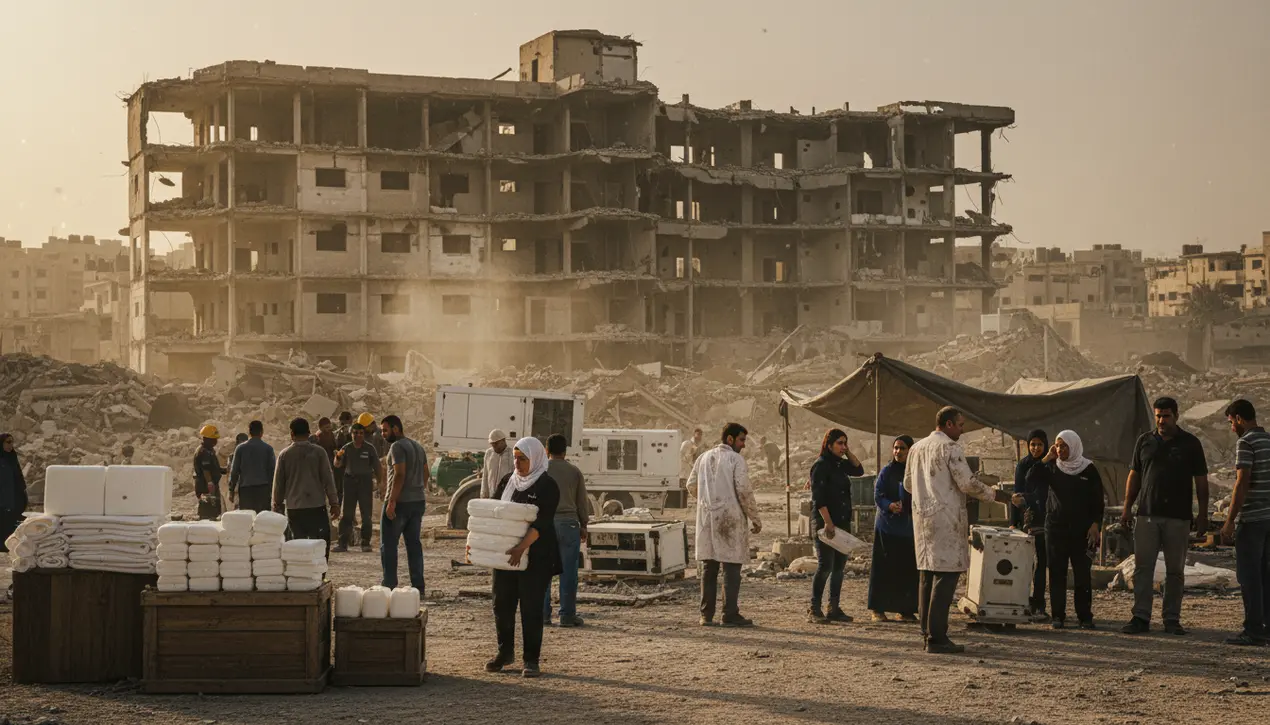
Politicshuman rightsHumanitarian Aid
Rebuilding Gaza's Health System Requires International Support.
EM
Emma Wilson
1 day ago7 min read1 comments
The skeletal remains of Gaza’s health infrastructure stand as a stark testament to the brutal cycles of conflict that have plagued the region, yet amidst the rubble and the pervasive scent of dust and decay, a tenacious spirit of Palestinian resilience is already flickering to life. Local doctors, nurses, and civil engineers, many operating on sheer willpower alone, are spearheading the monumental task of piecing their medical system back together, often with little more than donated gauze and dwindling personal reserves.The critical, looming question that now hangs over this nascent recovery is not one of local will, but of international resolve: will the global community step up to deliver the emergency assistance—the immediate restoration of fuel for generators, clean water to stave off cholera, and the steady, unimpeded flow of essential medicines and surgical supplies—in a manner that deliberately fortifies local institutions and nascent governance structures, rather than bypassing them? History offers a cautionary tale; in post-conflict scenarios from Afghanistan to Iraq, well-intentioned but poorly coordinated international aid has often created parallel systems that undermine local authority, breed dependency, and ultimately collapse when the foreign agencies depart. Here, the principle of ‘build back better’ must be intrinsically linked to ‘build back local.’ The alternative—a top-down, donor-driven model—risks eroding the very social fabric that holds communities together during their darkest hours. We’ve seen the reports from the World Health Organization detailing how the bombing campaigns have rendered over half of Gaza’s hospitals completely non-functional, with the remaining facilities operating at triple their capacity, performing surgeries without adequate anesthesia by the light of mobile phones.This is not merely a logistical crisis; it is a profound human catastrophe where the lack of fuel means incubators for premature babies fall silent and water purification plants grind to a halt, creating a secondary wave of mortality that could eclipse the violence itself. The delivery of aid, therefore, must be reconceptualized not as charity, but as strategic investment in stability.It requires a nuanced approach where every shipment of medical supplies is coordinated with the Palestinian Ministry of Health, where the procurement of generators is managed by local municipal councils, and where the training of trauma specialists is led by Palestinian surgeons who understand the specific wounds of this conflict. The international community, from the UN agencies to bilateral donors, faces a moment of moral and strategic clarity.To fail in this, to impose a clumsy, externalized aid architecture, would be to sow the seeds for the next collapse. The people of Gaza are not just waiting for rescue; they are actively building their future. The world must now decide whether it will provide the tools that empower that effort, or once again, through action or inaction, become an obstacle to it.
#weeks picks news
#Gaza
#health system
#reconstruction
#international aid
#humanitarian crisis
#local governance
Stay Informed. Act Smarter.
Get weekly highlights, major headlines, and expert insights — then put your knowledge to work in our live prediction markets.
Related News
Comments
Loading comments...
© 2025 Outpoll Service LTD. All rights reserved.